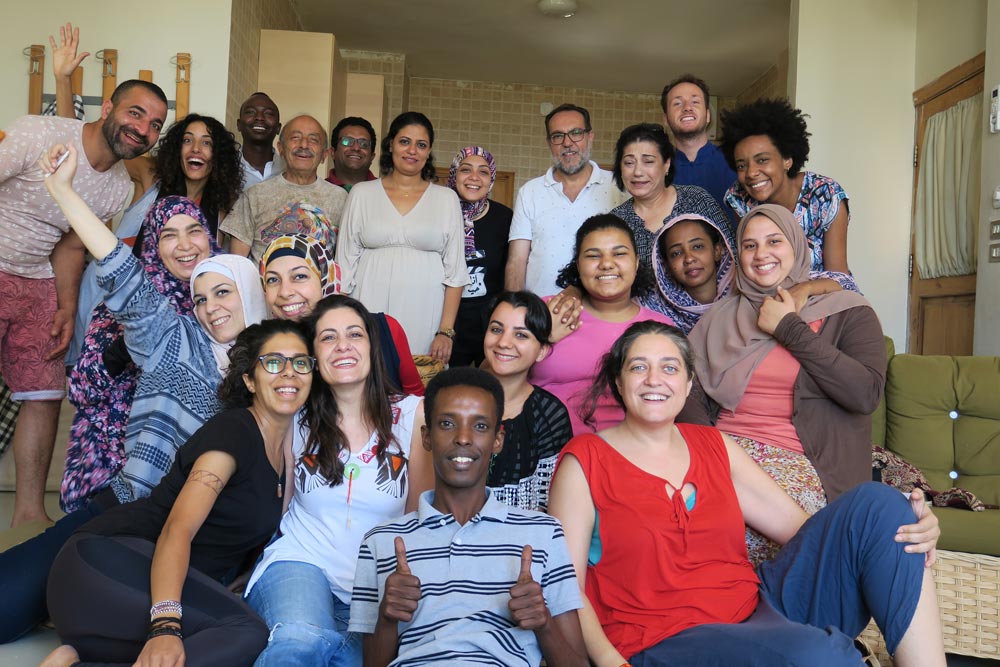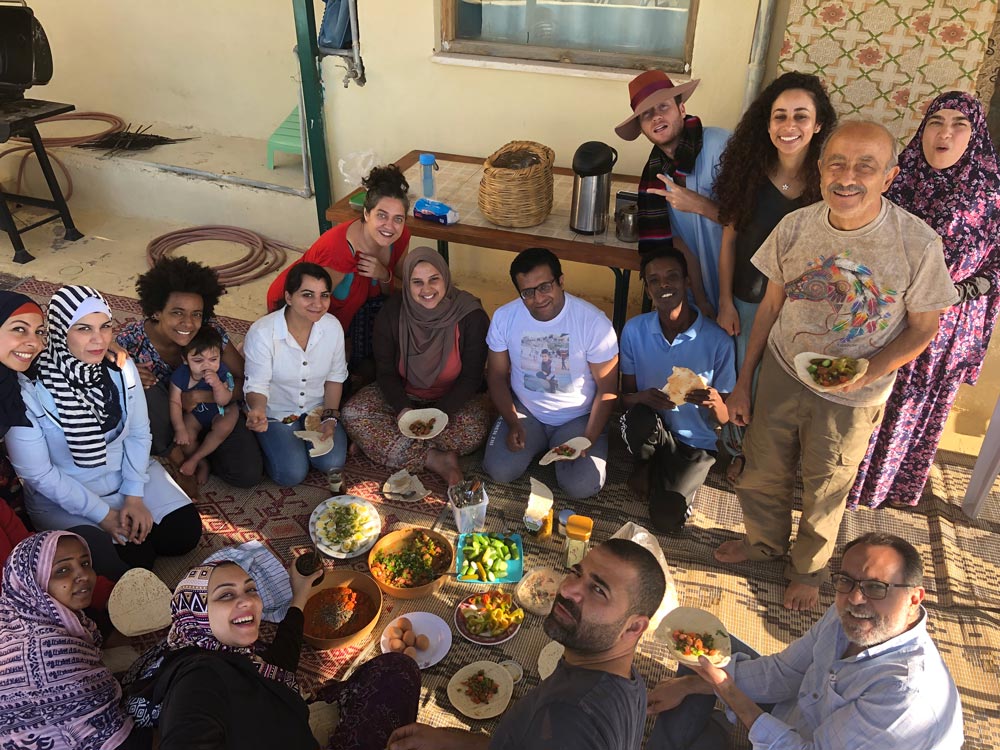
SUMMARY
Hosting Organizations: Taghmees for Training, Jordan, in consultation with
Cairo Institute of Liberal Arts and Sciences, Egypt
Time & Place: 4 nights/5 days (September 20th – September 24th), on a family-run eco-farm in Dibeen, Jerash located in the north of Jordan.
Participants: 30 people from 9 Arab countries representing Jordan, Palestine, Iraq, Syria, Egypt, Yemen, Sudan, Somalia, and Lebanon, weaving a cultural horizon.
Mujaawarah in Arabic as a medium that heals and nurtures… A mujaawarah literally means ‘neighboring’.
Mujaawarah can only be lived; it requires physical presence and face-to-face conversations. It happens at the communal level, where learning takes place in freedom, not fear. It can only happen with trust, honesty, mutual nurturance, among people who are ready to really listen to one another with full attentiveness. The stress is not so much on information and content as on re-thinking and unlearning much of what has been learned before entering the mujaawarah – including beliefs.
Mujaawarah does not have to follow any particular format. It embodies a simple idea in the sense that it can be done by all people using what is available. Though simple, it is usually not easy, because it is contrary to what we were taught. All what mujaawarah needs are people who decide to meet over a period of time to learn what they want to learn, or do what they feel needs to be done, in freedom with no authority they have to please; a social structure where people learn, think, act, relate, and manage their affairs outside confines of institutions.
It does not necessarily require license, budget, professionals, or visible outcomes. It stresses convictions ignored in modern institutions such as every person is a source of meaning and understanding and every person is unique (cannot be compared with others along a vertical line). As a medium for learning, it is radically different from institutional learning. In mujaawarah, the subject of study includes people’s lives in the context where they live. Learning is not something a person gives to another, but something a person does to oneself (within a group) that involves sharpening character through actions and interactions. [However, there is need to stress that a mujaawarah is a medium not a value (a bunch of thieves can form a mujaawarah); that’s why wisdom needs to accompany mujaawarahs we form or talk about.]

The main ‘medium’ in the gathering was people telling stories about their experiences in relation to learning, culture, building community, co-authoring meanings, and knowledge – in harmony with wisdom, wellbeing, and plurality. In telling stories, people are equal in worthiness in the sense that they cannot be compared along a vertical line. The absence of any authority within or from outside helped in creating an atmosphere of trust that made the gathering very lively and at the same time helped in weaving social intellectual cultural spiritual fabric among those who were present.
– Munir Fasheh – Palestine
We were mothers, fathers, brothers, sisters, children, all relations, people of the land, refugees on the land, refugees from neighboring lands, with a range of the backgrounds and beliefs that grew from our soil. how strange and lovely to witness an elder encounter a young person from
the Sabe’ah in Iraq, a faith that he had only heard about from stories… to hear her honey sweet melody hum from her core breaking through the shyness that surrounds her strength; how humbling to witness a voice reverberating the revolutionary streets of Sudan honoring the presence of a brother from Darfur, shouldering the burden for historical wronging (…)– Dina Bataineh
Download the full report of the Arab Ecoversities Gathering
Download the text in Arabic
Download the photos


